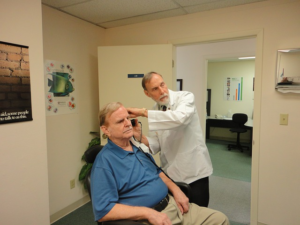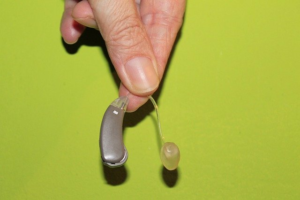AAA Provides Tips for OTC Hearing Aid Purchases – The Hearing Review
Recently, the Food and Drug Administration (FDA) finalized a rule change that would allow a class of over-the-counter (OTC) hearing aids to be available to adult consumers directly without the care and guidance of a hearing health professional. By mid-October, consumers will be able to purchase over-the-counter hearing aids (OTC HAs) online and at big-box stores, pharmacies, and even through your audiologist. To date, approximately 70% of people who need hearing aids have not yet taken steps…….
Recently, the Food and Drug Administration (FDA) finalized a rule change that would allow a class of over-the-counter (OTC) hearing aids to be available to adult consumers directly without the care and guidance of a hearing health professional. By mid-October, consumers will be able to purchase over-the-counter hearing aids (OTC HAs) online and at big-box stores, pharmacies, and even through your audiologist. To date, approximately 70% of people who need hearing aids have not yet taken steps to manage their hearing loss. This new category of OTC hearing aids was created in an attempt to make hearing aids more affordable and more easily accessible so that more people will take action to improve their hearing. The American Academy of Audiology (AAA) announced that it has worked with congressional leaders in the development of the bill to ensure OTC hearing aid devices will be safe and effective. Most importantly, the organization wants to make sure consumers know that hearing is an essential aspect of health and deserves attention and management. Untreated or under-treated hearing loss is associated with cognitive decline, social isolation, anxiety, depression, and can dramatically impact quality of life.
“Unfortunately, hearing loss associated with aging has been considered normal, just because it’s common,” said Sarah Sydlowski, AuD, PhD, MBA, president of the AAA. Sydlowski is also audiology director of the Hearing Implant Program and associate chief improvement officer at the Cleveland Clinic. “Although hearing loss is the third most common chronic health condition, it is not something we should ignore or learn to deal with. Hearing is what connects us to people; it keeps us vital as we age; it allows us to be successful in the workplace. We have one set of ears for our lifetime and it is essential that we protect and nurture them.
“While over-the-counter hearing devices will be fine for some, they will not work for everyone,” Sydlowski explained. “If a hearing device over-amplifies sound, it can damage hearing. Conversely, just wearing something in the ear is not enough to offset the side effects of hearing loss if sound is not amplified adequately.” There is also concern that over-the-counter hearing aid purchasers with significant hearing loss will be disappointed and may give up trying to correct their hearing. “For those, we hope that OTC hearing aids will be an entry point so that they can determine that they need a better solution,” added Sydlowski.
Using OTC HAs may be a way to get started managing hearing loss for adults who perceive mild-to-moderate hearing difficulty. For instance, consumers who can hear easily in quiet, one-on-one situations but have difficulty in groups, may be good candidates. Or, if there are a few difficult listening situations when they feel OTC hearing aids would help (as opposed to most situations), OTC may be …….
Source: https://hearingreview.com/inside-hearing/legislation/aaa-provides-tips-otc-hearing-aid-purchases







